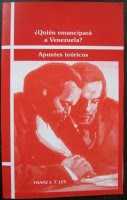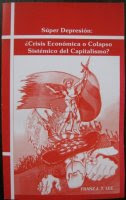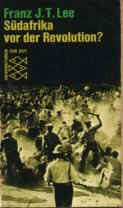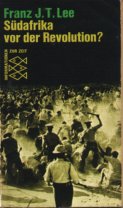
Franz J. T. Lee
HISTORY OF WISDOM
Ancient Greek Philosophy: Materialism versus Idealism
Book I & II

CONTENTS
BOOK ONE
BOOK TWO
© 2003 Franz J. T. Lee All Rights.

BOOK ONE
1. Introduction to Philosophy
Like Socrates, inter alia,
we know that we know nothing.
Labour, Patria and History
Before we blaze the fiery, archaic Ancient Greek trail of the "History of Wisdom", we have to introduce our concept of History, based in the Labour process, developed as a result of decades of investigation, research, scientific acting and action, of philosophic thinking and thought, in brief, of práxis a n d theory. Certainly, at least three major concepts have to be clarified: Labour, History and the Patria. However, formal logically, it is well-nigh impossible to expound these far-reaching central conceptual processes in a few introductory paragraphs,
Nonetheless, as we continue, in the following chapters, their real meanings, true context and contents will unfold themselves. Hence, we bid the reader to be patient; on reading the texts again and again, eventually the above will become philosophic household words. What follows now is unusual, is new, original, authentic. Let us follow this strange logics step by step, there is an important "method" in this seeming "madness" ( See: Franz J. T. Lee, Science and Philosophy. Also: Franz J. T. Lee, Philosophical Dialogues).
The Pico Bolivar Scientific-Philosophic Perspective: A Simple Approximation of a Possible New Man of the Third Millennium
Levels, Degrees and Mensions of Human Knowledge
Looking through the window here in Mérida, outside there, at the foot of Pico Bolivar, everything is still near and clear, warm, essential and identical, simple and easy, level and tangible, only a limited panorama enters our vision. Higher up, things already move to a distance, they are seen in another context, more related, contradictory and complex; they can only be reflected as such in their different degrees of existence. To explain this complex, complicated matter to someone who forever has been living, acting and thinking in a formal logical, flat, limited world, in a binary and bicameral surrounding, is well-nigh impossible. For her/him to understand concepts like Labour, Ideology or Revolution, s(he) must make some intellectual effort, must activate dormant theoretical capacities, must ascend Pico Bolivar, at least to the second station of the "teleférico", of the cable car lying in the middle part.
Who reaches the top, enters new mensions, has an all round view, sees things in the far distance. Everything appears vague, cool. cloudy and intangible, but one can perceive all sorts of relations, contradictions, conflicts, and antagonisms, one gets a global social vision, a transhistoric perspective.
Because we are socially cognisant of all praxical levels and theoretical degrees, have reached the cold, lonely, well-nigh inaccesible trancendental cliffs of snow-capped Minerva, this new sublime mension, void of all ideological slime, can now be discovered by us, by conscious and conscientious students and professors, for precise, incisive and decisive investigation and research work. This newly acquired knowledge and transhistoric perspective enable us to surmount other majestic emancipatory Andean heights and depths, to reach other unknown micro-, meso- and macroscopic spheres of creative, galactic emancipation.
In this way, the New Man of Ernst Bloch and of Che Guevara could regain his lost human trinity: the human being and existence and transcendence.
Without a radical, cultural, creative revolution, without a transcending "exvolution" towards human emancipation, without a "transvolutionary" exodus (Ernst Bloch) out of capitalist and imperialist misery, without casting off the religious and ideological "chains of illusion" (Erich Fromm), a possible new species man can and will not accomplish any true socialism or real communism, in fact, will not even be given any transit to purgatory or any keys to open the gates of earthly paradise or divine heaven.
This has to be kept in mind, in education, in "exformation", in schools and universities, where revolutionary práxis and theory should be developed, studied, applied. Mixing up the levels, degrees and mensions of things, of relations and processes, of labour reality, as explained above, leads directly to ideological confusion, to reactionary fatalism, defeatism and nihilism.
In short, in our schools, missions, universities and other institutions of "higher" learning, in our educational and socialization institutions, simple things ... like conserving potable water, by closing leaking taps well, by not singing more than one song under the shower (Chavez) ... that is, tangible realities that can be grasped easily by a still oppressed, manipulated and indoctrinated mind, can and must be expressed straightforwardly as concrete levels, in simple, scientific, praxical terms as human acts. As such the latter can and will be understood precisely by any still thinking mind.
Complex things, like práxis and theory, ... like ideology and practice, like reform and revolution, like Ernst Bloch's scientific and philosophic explanations of the relations between cold and warm currents in revolutionary Marxism, ... cannot be expressed as simplicity, it is not their natural habitat. They presuppose intellectual endeavour, social reflection and philosophic creativity.
Vague things like emancipation, like a possible postcapitalist mode of creation, ... like the Arab philosophic concepts of Avicenna or Averroes, natura naturata and natura naturans, creative and created nature, ... definitely do include simple and complex issues, but scientifically and philosophically, they can only be grasped radically and rationally with excellent reasoning, with transcendental excellence, that is with emancipatory, creative Wisdom, more precisely, with transcendental immanence and immanent transcendence (with Bloch's principle of hope).
Logically, academic and intellectual issues and questions that concern the very existence and transcendence, the quo vadis of the human species cannot be approximated with political multiple choice tables or by means of mammoth audio-visual manuals and formal logical questionnaires. We should learn to understand and explain them in an opaque transhistoric fashion. Otherwise, to explain transhistoric wisdom irresponsibly in simple and complex terms, as Mickey Mouse comic strips, as popular hit parade songs, as obsolete catechisms or eternal textbooks for beginners, as liveless things, as absolute truths, that have to be learned by rote, is simply a useless educational venture and a dangerous academic adventure. On the university campus, this kind of academic abuse plays havoc with anything progressive or hopeful, from all directions and tendencies will just call into being student turmoil and devastating professorial typhoons, conspiracy, high treason sabotage and murder, and consequently, will transform the democratic alma mater, the sapient spirit of Minerva, into an ideological factory of the ruling ideas of the ruling classes, into a reformist, reactionary lair for all kinds of social vipers, vices, hoaxes, treachery and corruption.
In the current age, where Hitler's fondest, Orwellian dream is globally becoming true ... "if you want to control a people, control its education" ... more than ever should we defend academic revolutionary práxis and theory, should we create human, transcendental, emancipatory wisdom. Because dialectically absolute truths do not exist in the concrete fields of human science and philosophy, because no objectivity exists without subjectivity, and vice versa, also, in this case we have to choose sides, the side of truth, of humanity, of the billions of "wretched of the earth" (Frantz Fanon) to instruct ourselves and our students cum ira et studio.
We love our erudite professors, we love our diligent students, but the knowable truth and truthful knowledge we love even more.
Building on past scientific and philosophic knowledge, in what historic context can academics and intellectuals support revolutionary práxis and theory in the 21st Century? Let us now concretize the quintessence of our transhistoric quo vadis! What created us? What can we create? -- read more ...

Home














No comments:
Post a Comment